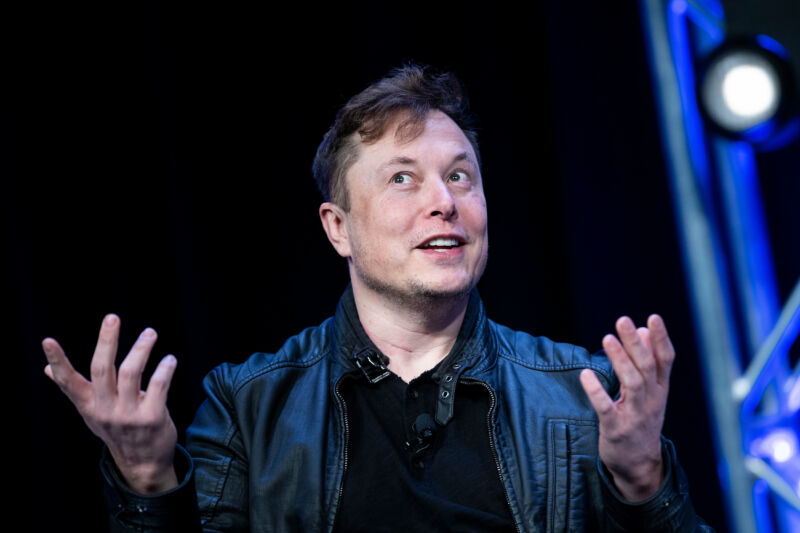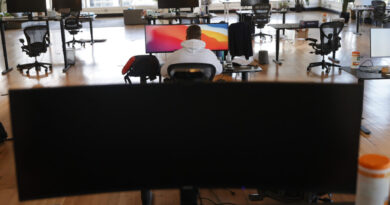Musk Dares County Officials To Arrest Him As He Reopens Fremont Factory

Elon Musk is planning to defy county officials as he battles to reopen Tesla’s Fremont factory in the face of a continued shelter-in-place order in Alameda County, California, Musk announced on Twitter on Monday.
“Tesla is restarting production today against Alameda County rules,” Musk tweeted. “I will be on the line with everyone else. If anyone is arrested, I ask that it only be me.”
Tesla has also filed a federal lawsuit against public health officials in Alameda County. County officials have ordered Tesla to keep the factory closed under a county-wide shelter-in-place order. Tesla argues the order contradicts instructions from California Gov. Gavin Newsom and violates the US Constitution.
Alameda County’s shutdown order was part of a coordinated effort among Bay Area jurisdictions in mid-March to stop non-essential activities and slow the spread of COVID-19. Tesla CEO Elon Musk chafed at the order, initially arguing that the Fremont factory was considered an essential facility and finally shutting the plant down on March 23, a week after the order initially took effect.
California’s Democratic Gov. Gavin Newsom announced his own statewide shutdown order on March 19. That order lasted until last week, when Newsom announced plans for gradually reopening California’s economy. That prompted Tesla to announce to employees in a Thursday email that the factory would reopen. Alameda County officials objected, pointing out that Alameda’s order was still in place.
Musk was furious. “The unelected & ignorant ‘Interim Health Officer’ of Alameda is acting contrary to the Governor, the President, our Constitutional freedoms & just plain common sense!” he tweeted on Thursday. He called Alameda’s decision “the final straw” and said that “Tesla will now move its HQ and future programs to Texas/Nevada immediately.”
He vowed to file a lawsuit—a promise he kept on Saturday.
Tesla says Alameda County contradicts state orders
Tesla’s legal case hinges on a single sentence in Gov. Newsom’s March 19 shutdown order: “I order that Californians working in these 16 critical infrastructure sectors may continue their work because of the importance of these sectors to Californians’ health and well-being.” Newsom was referring to 16 sectors of the economy—including financial services, chemicals, and information technology—that the federal government defines as critical infrastructure. Crucially, those 16 sectors include transportation and energy; Tesla argues that it’s part of both sectors.
Tesla argues that this sentence in Newsom’s order overrides county orders on the subject, blocking them from shutting down companies in critical industries. But it’s not entirely clear if the phrase “may continue their work” was intended to preempt local decisions or if it was merely Newsom’s way of saying the state order wasn’t shutting these companies down.
On May 7, California public health officer Sonia Angell issued a new order lifting some statewide restrictions. The order stated that “a local health jurisdiction may implement or continue more restrictive public health measures if the jurisdiction’s Local Health Officer believes conditions in that jurisdiction warrant it.”
During a Monday press briefing, reporters peppered Newsom with questions about the dispute. Newsom answered like a politician, expressing admiration for both sides and confidence that they’d work out a deal. Speaking of Tesla, Newsom said he had “great reverence for their technology, for their innovative spirit, for their leadership.”
But he also stressed that “it’s county-led enforcement in these cases.” He didn’t endorse Tesla’s view that Alameda County’s order was inconsistent with Newsom’s own order.
14th Amendment
Tesla’s lawsuit also claims that Alameda County’s order violates Tesla’s due process rights under the 14th Amendment. The courts have ruled that the Constitution requires government officials to have a “rational basis” for policies that implicate peoples’ rights. Tesla argues that Alameda County’s policies fail this test.
“Tesla is permitted, and continues, to operate its factory and other facilities in neighboring San Joaquin County,” Tesla writes in its lawsuit. “There is no rational basis for this disparate treatment of two neighboring Tesla facilities.”
Tesla seems to be arguing here that it’s unconstitutional for neighboring jurisdictions to have different laws if those laws negatively affect someone’s rights. It’s a position that at least one legal scholar has greeted with skepticism, as it could have radical implications if federal courts accepted it.
READ MORE HERE


